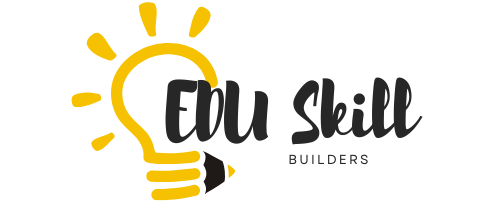

Disclosure: This article is based on personal experiences and research. The recommendations provided are unbiased and not influenced by any partnerships or sponsorships.
Online learning platforms have transformed the way we gain skills and knowledge. Whether you’re brushing up on Excel for work, diving into photography as a hobby, or learning a new language, platforms like LinkedIn Learning, MasterClass, and Udemy make it all possible from the comfort of your home.
👉 Want to learn how to use these platforms effectively? Check out our guide on Mobile Learning Apps: Learning on the Go.
But let’s face it: signing up for a course and actually finishing it are two very different things. (Guilty as charged!)
Real-Life Example: Applying Online Learning to Business Success
Over the years, I’ve learned a thing or two about getting the most out of online learning, and I’m here to share my secrets.
During my entrepreneurial journey, I enrolled in the Udemy course LinkedIn B2B Sales for Entrepreneurs and Startups. The course focused on leveraging LinkedIn to identify leads, nurture connections, and close deals in the B2B space.
I applied the strategies directly to my janitorial consulting business, using LinkedIn to connect with facility and property managers needing expert guidance.
One technique I learned—personalized connection requests followed by value-driven messaging—helped me secure two new clients within three months of completing the course.
This experience underscored the power of online learning to gain knowledge and implement it for tangible results.
Think of this as advice from a friend who’s been there and knows the pitfalls—and the tricks to stay on track.
1. Choose the Right Platform for Your Goals
Not all online learning platforms are created equal, and that’s a good thing. Different platforms cater to different needs, so it’s all about finding your perfect fit.
- For career advancement: LinkedIn Learning offers professional development courses that help you boost your resume and learn industry-specific skills.
- For creativity and inspiration: MasterClass is a treasure trove where you can learn from experts like Gordon Ramsay and Serena Williams.
- For budget-friendly skill-building: Udemy has an extensive library of courses, often at discounted rates, making it a great option for learners on a budget.
👉 Not sure where to start? Our list of the Best Virtual Learning Platforms can help you decide based on your learning objectives.
2. Set Clear Goals Before You Start
Ask yourself: Why am I taking this course? Knowing your “why” makes a huge difference. Are you trying to get a promotion? Pick up a hobby? Or just explore something new?
👉 If career advancement is your focus, don’t miss our guide to the Top 5 Benefits of Accredited Courses.
Once you know your goal, write it down. Break it into smaller, actionable steps. For example:
- Complete one module per week.
- Take notes and create a summary after each lesson.
- Apply what you’ve learned in a real-world setting.
Having a game plan gives you direction and keeps you motivated when life gets busy.
3. Create a Study Schedule and Stick to It
Ah, the joys of flexible learning. You can watch a lesson at 2 a.m. in your pajamas or during your lunch break. But that flexibility can also be a double-edged sword if you’re not careful. Without a schedule, it’s easy to procrastinate.
Here’s what works for me:
- Pick a consistent time: Treat your learning time like an appointment you can’t miss.
- Limit distractions: Silence your phone, close unnecessary tabs, and let your housemates know you’re in “study mode.”
- Use time-blocking: Dedicate 30-60 minutes to your course and stick to that timeframe.
4. Take Notes Like a Pro
Let me tell you a secret: the act of writing notes helps your brain retain information better. But don’t just jot things down randomly—be strategic.
- Summarize key points: Focus on the “aha” moments and the things you want to remember.
- Use visuals: Charts, mind maps, and diagrams can help organize complex ideas.
- Create a glossary: If your course uses industry jargon, having a quick-reference glossary will save you time later.
5. Engage with the Material Actively
Online learning isn’t just about hitting play and passively watching videos. The magic happens when you actively engage with the material. Here’s how:
- Pause and reflect: After each module, ask yourself, How does this apply to me?
- Test your knowledge: Many platforms offer quizzes or assignments—do them! They’re not just for fun; they solidify your learning.
- Practice what you learn: If you’re learning coding, write a mini program. If it’s cooking, get in the kitchen and try that soufflé.
6. Don’t Go It Alone: Connect with Others
Online learning doesn’t have to be a solo journey. Many platforms offer discussion forums or social groups where you can connect with fellow learners. These interactions can spark ideas, answer questions, and keep you motivated.
- Ask questions: Don’t be shy about seeking help in forums or comments. Chances are, someone else has the same question.
- Join communities: Facebook groups, Reddit threads, or LinkedIn communities focused on your topic can be invaluable.
7. Celebrate Your Progress
Learning is hard work, and you deserve to acknowledge your efforts. Too often, we complete a course and immediately move on to the next thing without celebrating our wins. Take a moment to reflect on how far you’ve come.
Here are a few ideas:
- Reward yourself: Treat yourself to something small—a coffee, a movie night, or that fancy pen you’ve been eyeing.
- Update your resume: Add your new skills or certifications to LinkedIn to showcase your growth.
- Share your journey: Post about your experience on social media or tell a friend. Sharing your story can inspire others!
8. Apply What You Learn in Real Life
The best way to lock in your knowledge is to use it.
👉 For inspiration on career-oriented learning, check out our post on the Best Online Courses for Career Advancement.
Whether it’s practicing French phrases with a friend, applying a marketing strategy at work, or sketching your first art piece, real-world practice is where the magic happens.
If your course doesn’t include practical assignments, create your own! For example:
- Write a mock business plan after taking an entrepreneurship course.
- Volunteer to build a website for a friend after learning web development.
- Start a blog to showcase your writing skills after a content creation class.
9. Keep Exploring and Adapting
Online learning is a journey, not a destination. Once you finish a course, don’t stop there. Think of it as a stepping stone to something greater.
- Expand your horizons: Dive deeper into your topic or explore related areas. For instance, if you just completed a graphic design course, why not tackle UI/UX design next?
- Stay curious: Technology and industries evolve fast. Keep an eye out for new courses or certifications to stay ahead of the curve.
Final Thoughts
Getting the most out of online learning platforms isn’t about being perfect—it’s about being intentional. By setting clear goals, staying consistent, and actively engaging with your courses, you’ll not only learn new skills but also develop a deeper sense of confidence in your ability to grow.
So, what are you waiting for?
Dive into that course you’ve been eyeing, and remember—you’ve got this! And hey, if you have any tips or tricks that have worked for you, drop them in the comments. I’d love to hear your story!
About the Author
Chris is a lifelong learner and entrepreneur with over a decade of experience exploring online learning platforms. Having completed certifications in topics ranging from business management to creative writing on platforms like LinkedIn Learning and Udemy, Chris is passionate about helping others navigate the world of digital education. As the founder of multiple ventures, Chris shares actionable insights to empower readers to achieve their learning goals and apply new skills in real life.
